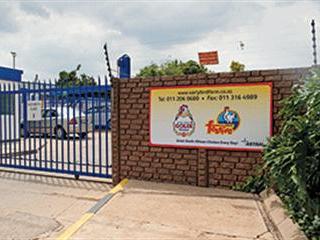
Four to eight times a worker’s annual salary is the cost to company per employee infected with HIV. With more than 10 000 employees and a 26% HIV infection rate, Astral stood to lose millions if it could not improve the health of its workers.
This calculation did not account for the insidious cost of ‘presenteeism’, a term used to describe the inability of workers to function effectively while at their workplace.
Under the management of Kaelo, a corporate health company, the Astral Health Link Programme has seen the number of Aids-related deaths in its workforce reduced from 15 per thousand to about eight per thousand in three years. Improved employee wellness and the company’s declining risk cover premiums are obvious benefits.
Implementing wellness
In 2008, Astral commissioned Kaelo to undertake an impact study to assess the prevalence, impact and costs relating to HIV/Aids in its workforce. “We wanted to understand why employee benefit costs were escalating, and the future impact of Aids-related deaths on our customer base and product sales,” says Len Hansen, human resources director at Astral.
“The effect of breadwinners becoming ill, being unable to work or dying was profound and threatened communities. Aside from the cost to company, the impact of disease on employees, their dependents and their communities is immense.”
Astral’s investment in an extensive wellness programme started the reversal of a potentially destructive trend.
Encouragement
Wellness screening, including HIV testing and counselling, was introduced. Peer educators, selected from the workforce and trained, act as ambassadors for the programme and encourage co-workers to go for screening. “These are trusted and respected people in the workforce who work to dispel myths about the programme and various diseases,” says Marianna Borges, executive account manager at Kaelo. She admits it was difficult to get employees to test for HIV when the programme started. “Then a worker’s Aids-related death became the catalyst that encouraged people to get tested.”
An holistic approach
The wellness programme also looks at the management of other diseases including TB, diabetes, high cholesterol, hypertension and obesity. Marianna says effective intervention has to address these diseases as well as HIV/Aids.
Since the inception of the wellness programme in 2009, Kaelo has conducted 21 622 full wellness screenings, with 18 358 HIV tests completed.
The vast majority of employees know their HIV status and people identified with chronic diseases receive treatment, support and counselling on an ongoing basis. CD4 counts, which indicate the stage of HIV, are taken twice a year in line with patient management protocols. If the CD4 count is below a certain level anti-retrovirals (ARVs) are administered. Some of Astral’s sites have their own Kaelo wellness centres while others are serviced by mobile clinics and travelling patient managers employed by Kaelo.
Len says this has helped productivity as HIV positive workers are not compelled to take a day off to go to a government clinic. “They can visit the onsite clinic over lunch or at tea time. “Because the programme looks at more than just HIV, no one can say that if someone goes to the clinic they must be HIV positive.”
Luanne Smalle, human resources manager at Meadow Feeds, says that commitment from top management is crucial to the programme’s success. “The programme is not a flavour of the month thing. It needs to be implemented as a way of life.”
She says targets must be set to measure progress and benchmark against other divisions in the group. “Proper inclusion in the budget is important. Money set aside for the project must be non-negotiable.”
Productive workers
With such a major reduction in the number of death claims in the last two years, Astral’s savings have been substantial. “If we factor in the corresponding reduction in absenteeism and sick leave, the savings to Astral are appreciable,” says Andrew Biddlestone, national sales manager at Hollard Group Risk where Astral is a client.
He points out that Astral’s return on investment in the wellness programme amounted to millions in 2011, because of a sharp decline in death and disability claims, reduced absenteeism, lower presenteeism and enhanced productivity. Improved employee health has led to a decline in Astral’s risk cover premiums with the savings re-routed directly to the company’s employee retirement funds. “Astral employees have a provident fund and contributions are made to insurance risk benefits with the balance going to retirement investments,” explains Andrew.
Improving health
Len says that although they foresee the number of recorded HIV positive employees will increase as more people come forward for testing, the general health of the workforce is improving. Marianna explains that a healthy lifestyle can extend the life of an HIV patient. “Management is vital and through this programme people realise that they can choose how they want to live and that their life expectancy can be extended.”
Len believes it is important to boost workers’ morale and make them proud to be part of the company. “This has a positive impact on productivity. “The cost of employing someone is about four times their annual salary if you take into account the recruitment process, training and losses due to mistakes made before employees get to the required skills level. The processing yield on a chicken goes up drastically when workers know how to cut up a chicken properly.”
With the HIV prevalence of chronic conditions running at 21%, Astral is under no illusion that there’s a quick fix. “Pro-active health care is a long-term process, with the key aim of promoting healthy lifestyle choices and providing education to improve the health of employees and their families or to prevent illness arising in the first place,” says Marianna.
Contact Kaelo on 011 778 4340.













